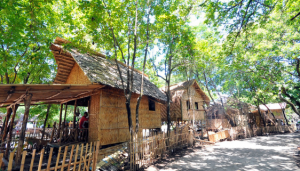By Antonio L. Colina/MindaNews
DAVAO CITY (MindaNews) — At least 57 national and international environmental groups said they are “deeply concerned” over the integrity of the claims of the Japan International Cooperation Agency (JICA) that it has not been supporting the development of a multi-billion peso waste-to-energy (WTE) incinerator project in this city.
The statement, signed by environmental alliances and organizations, urged JICA to “withdraw its support for Waste-to-Energy in Davao City and elsewhere in the country in respect to our ban on incinerators.” The statement was released in response to JICA’s January 26 statement that it has not been supporting the WTE project in Davao City.
 In a three-page statement dated January 30 but e-mailed on Saturday, February 4, the groups maintained that JICA has been instrumental in introducing the WTE technology to this city and reiterated their strong opposition to the proposed project.
In a three-page statement dated January 30 but e-mailed on Saturday, February 4, the groups maintained that JICA has been instrumental in introducing the WTE technology to this city and reiterated their strong opposition to the proposed project.
They also questioned JICA for its alleged lack of accountability on past and present efforts in promoting and investing in false solutions to the waste management and climate in the city.
Fifty-seven groups from different countries — 27 from the Philippines and 30 from Indonesia, India, Bangladesh, Malaysia, Vietnam, People’s Republic of China, United Kingdom, United States of America, Mongolia, South Africa, Tanzania, and Argentina have joined calls for JICA “to withdraw its support for the WTE incinerator project and elsewhere in the country” in respect of the national ban on incinerators.
Among the 27 signatory groups from the Philippines are Interfacing Development Interventions for Sustainability (IDIS), Inc., Ecoteneo, Magsasaka at Siyentipiko para sa Pag-unlad (MASIPAG-Mindanao), Mintal Resource Collectors Association and Panalipdan Youth-Davao, Pag-asa Youth Association of the Philippines-Mintal Chapter, Sustainable Davao Movement, and Youth Advocates for Climate Action Philippines (YACAP)-Mindanao.
The involvement of JICA in the WTE project started as early as 2010, the statement said.
It noted that the development assistance, which began as a collaboration program with the private sector for disseminating Japanese technology, commenced in March 2018 with the signing of the Japanese Government and the Republic of the Philippines of a grant agreement worth P2.052 billion to fund the construction and operation of a P5.23 billion WTE incinerator.
The remaining amount of around P3 billion will be sourced from the budget of the national government as a “counterpart fund.”
In August 2022, the City Council of Davao passed a resolution asking President Ferdinand Marcos Jr. to provide a counterpart fund, a move detested by environmental advocates as the amount requested is equivalent to more than 60 percent of the entire annual budget of the Department of Environment and Natural Resources.
Ide Soichiro, senior representative of JICA Philippines, said JICA is “neither funding nor implementing” the proposed WTE facility of the local government of Davao City.
“We would like to clarify that JICA is neither funding nor implementing the waste-to-energy facility project in Davao City,” he said.
He said JICA has always anchored its development cooperation with the Philippines through consultations with local stakeholders to promote sustainable, inclusive, and resilient growth.
He said the agency’s cooperation with the Philippines has always centered on “integrated society efforts” in addressing issues on climate change.
The environmental groups said JICA, in its feasibility study, recognized some legal challenges, particularly the Clean Air Act and the Solid Waste Management Act, in the construction of a full-scale WTE facility.
“Yet, JICA has continued promoting its Japanese technology despite a standing legal ban on incinerators now being defended by environmental advocates in the Supreme Court and in the midst of City-wide opposition to the project,” the groups said.
They said JICA’s assistance “flowed to systematically undermine the policy barriers for the entry of this Japanese technology in our waste management system.”
“JICA has directly engaged in the development of waste management guidelines, supported interagency meetings to discuss implementation arrangements for its project, and facilitated learning tours of government officials and waste regulators to WTE incinerator sites in Kitakyushu City, Japan,” they said.
The groups added that the cooperation “continued without access to information and meaningful consultations that city residents have continued to oppose.”
They expressed concern that the WTE incinerator would “produce globally known harmful byproducts such as dioxins, furans, mercury that will have dire implications to crop and soil health, air quality, the ecosystems, health and food security.”
“The WTE incinerator is not the answer to our city’s limited capacity for collection and segregation that was identified in the project feasibility,” they added.
The groups also hope that development institutions like JICA “see their support to capacitate our local governments to fully implement the Ecological Solid Waste Management Act and the provision of financing for existing Zero Waste systems and innovations that are deemed to be a just and more appropriate option for managing our waste.” (Antonio L. Colina IV / MindaNews)



